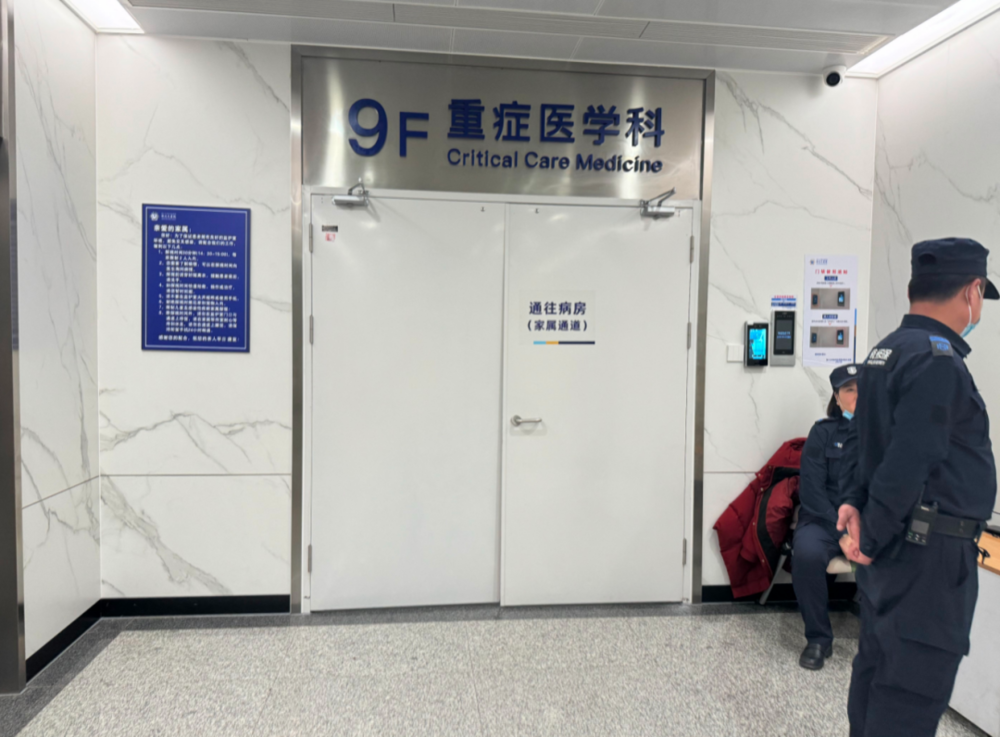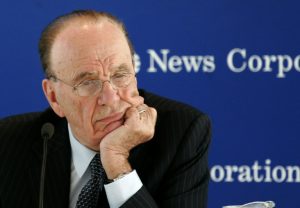新湖畔网 (随信APP) | 宗庆后人生中的关键时刻

新湖畔网 (随信APP) | 宗庆后人生中的关键时刻
【微信/公众号/视频号/抖音/小红书/快手/bilibili/微博/知乎/今日头条同步报道】
2月25日中午,娃哈哈发布讣告,娃哈哈集团创始人、董事长宗庆后,因病医治无效,于2024年2月25日10时30分逝世,享年79岁。
宗庆后是中国共产党党员,全国劳动模范,全国五一劳动奖章获得者,优秀中国特色社会主义事业建设者,改革开放40年百名杰出民营企业家,第十、十一、十二届全国人大代表,中国共产党浙江省第十二、十三、十四届代表大会代表。
杭州娃哈哈集团有限公司宗庆后同志治丧委员会定于2024年2月28日上午10时,在杭州娃哈哈集团有限公司下沙基地举行追思会。
此前在2月22日,据澎湃新闻报道,宗庆后正在浙江大学医学院附属邵逸夫医院ICU病房救治。
宗庆后自1989年创业至今,在接近35年的时间里历经商海浮浮沉沉。从改革开放、外资入华、到企业多元化转型、互联网冲击,中国民营企业走过的路、宗庆后全都走过。
虽然娃哈哈近十年来业绩下滑,追赶时代浪潮力不从心,但是宗庆后始终没有放弃努力站在一线、力追潮头。直至2021年7月,他还考取了基金从业资格证。回顾宗庆后的十大人生节点,也是回顾中国市场经济中民营企业过去三十多年的发展史。
一、1989年,成立娃哈哈营养食品厂
作为改革开放年代成长起来的企业家,宗庆后和他一手创办的娃哈哈集团至今已走过近四十年的历程,期间曲折也和其经典产品营养快线一样,酸甜交织。
在“娃哈哈”这个充满童真的名字变得家喻户晓之前,这家饮料业巨头的前身是杭州上城区的一个校办企业经销部。
上世纪80年代,物质还不够丰富,生活条件有限,国人普遍营养摄入不足。市场上相应涌现出各种各样的保健品,但多以成人作为消费对象,儿童保健品还是一块空白。中国疾控中心营养与健康所的年鉴数据显示,即使到了1992年,中国7至17岁儿童青少年营养不良率也达到了22.3%。
当了15年下乡知青和10年纸箱推销员的宗庆后很快嗅到了商机。
1987年,当时还在杭州工农校办纸箱厂负责推销的宗庆后借来14万元,承包下连年亏损的经销部,靠卖冰棍汽水扭亏为盈。两年后,他又成立了杭州娃哈哈营养食品厂,推出第一款产品——儿童营养液,并打出“喝了娃哈哈,吃饭就是香”的宣传标语,“娃哈哈”的名号迅速打响。
宗庆后并未止步于此,而是选择继续扩张。1991年,娃哈哈兼并下当时负债累累的大型国企杭州罐头食品厂,在质疑声和反对声中迈出了规模化经营的关键一步。
二、1994年,首创联销体系
在娃哈哈创立早期,其采用的是传统的“赊销”模式发展经销商,即厂家先发货,经销商后付款。这也使得娃哈哈早些年时常被拖欠货款,“讨债”成为了娃哈哈团队的日常。
1994年,宗庆后在经销商大会上提出了“联销体”,要求一级经销商必须提前交“保证金”,每个月结清货款后,娃哈哈再继续发货。销售结束后,娃哈哈返还“保证金”,并给经销商返利。他还制定了严格的价差体系。每一级经销商都必须严格执行对应的销售价格,实现“大家都有钱赚”。
“联销体”的模式提出之时属于行业首创,还曾被美国哈佛商学院引用为中国渠道创新案例。也正是这种将企业与经销商深度捆绑在一起的经销体系,让娃哈哈在90年代能够快速地渗入到各个省市、乡镇,实现绝地反击。
三、2006年,开启三年“达娃之争”
走向全国之后,宗庆后进一步引入外资。
1996年,娃哈哈与法国达能、香港百富勤成立合资公司,引入了来自国际头部企业的新鲜血液。1997年百富勤破产,并将其所持股份转卖给达能,达能成为这家合资公司的最大股东,持有51%的股份。
在达能的助力下,娃哈哈的规模迅速扩张,在新世纪陆续推出AD钙奶、非常可乐和爽歪歪等经典产品,2003年销售收入突破100亿,2006年跻身大型工业企业百强和上规模民营企业11位。
但双方的分歧也逐渐凸显,并在2006年集中爆发,开启了震惊中外的“达娃之争”。
矛盾焦点在于代加工厂。因为找不到符合条件的代加工厂,娃哈哈另外集资筹建了一批非合资公司,负责为合资公司加工产品。但时任达能集团董事长范易谋不满于代加工厂的存在,认为非合资公司瓜分走了原本属于合资公司的利润,要求用40亿元收购非合资公司,却遭到宗庆后的拒绝。
收购被拒后,达能对宗庆后和非合资公司发起诉讼,双方由此开启了长达三年的争战。宗庆后也不甘示弱,自学法律,积极应诉,最终在2009年9月30日与对方达成和解,达能售出其所持有的全部股份,合资公司彻底“换血”成为娃哈哈独资企业。
四、2012年,加快多元化步伐
胜诉之后,娃哈哈进一步坐稳了饮用水市场“霸主”的交椅,其触角也从饮料行业进一步扩张到其他领域,试图从独木桥转向一条分叉更多的大路。
2010年,宗庆后宣布进军奶粉市场,推出自有品牌“爱迪生奶粉”,声称比“洋奶粉”更懂中国;2012年,娃哈哈高调进军商业地产,首家娃欧商场于年底在杭州盛大开业;2013年,娃哈哈与茅台镇金酱酒业合作成立公司,跨界卖起了白酒,宗庆后本人更是放下豪言:娃哈哈将帮助茅台镇再造一个全国闻名的酱香酒品牌。
但娃哈哈的多元化转型之路并不顺遂,反而屡屡受挫。奶粉被曝滞销且强制员工购买临期产品、娃欧商场成立不到两年就仓皇倒闭、白酒公司业绩平平黯然退场,一次次的跨界尝试纷纷以失败告终,娃哈哈在饮料行业的神话也未能在别处续写。
但宗庆后对此并不气馁,反而云淡风轻地回应:“我们经济实力比较强,资金雄厚,亏点无所谓,所以有问题就收手,继续探索。”
五、2014年,业绩断崖式下跌
2014年后,娃哈哈的业绩陷入了断崖式下跌。全国工商联发布的数据显示,其2014年的营业收入为720.43亿元,但而后几年,均未超过500亿元。
娃哈哈的困境,是电商的冲击、渠道的变化、行业的竞争等多重因素作用下的结果。2021年,宗庆后在央视《对话》栏目中,毫不讳言娃哈哈的衰落原因——缺少创新。
成立三十余年来,娃哈哈打造了多款经典畅销产品,营养快线、纯净水、AD钙奶、爽歪歪、非常可乐等,都取得了不俗的市场表现。但另一方面,娃哈哈过度依赖老牌的大单品。
近年来,虽然娃哈哈频繁创新,推出了低卡果味茶饮、无糖茶、气泡水等多个新品,但都未能接棒“老三样”(营养快线、纯净水、AD钙奶)。随着低糖、无糖概念的兴起,娃哈哈的老牌产业也在因为高糖受到冲击。
到底要如何创新,宗庆后没有给出这个时代的答案。
六、2016年,与马云隔空互怼
对于电商,起家于线下零售的宗庆后早期并不看好,这可以从他和马云的隔空互怼风波中窥见端倪。
2016年年底做客《对话》节目时,宗庆后剑锋直指马云提出的“五新”(新零售、新制造、新金融、新技术和新能源),表示除了“新技术”外,其他都是胡说八道。几天后,马云在浙商大会上发言称,企业没有实体和虚拟之分,企业家要不断学习“五新”趋势,否则会因为落后的思想被淘汰,疑似对宗庆后的批评做出回应。
但两人并未因此决裂,反而越走越近。2017年9月,娃哈哈与阿里牵手,共同推出共享服务信用亭,双方优势互补。
近年来,宗庆后也逐步向...
--- 此处为内容截断,显示不全。若需要继续后面的内容,请提出继续需求。感谢阅读。---
英文版:
On February 25th at noon, Wahaha released a notice announcing the passing of its founder and chairman, Zong Qinghou, due to ineffective treatment for illness at 10:30 am on February 25, 2024, at the age of 79.
Zong Qinghou was a member of the Chinese Communist Party, a national model worker, a recipient of the National Labor Medal on May 1st, a builder of China's excellent socialist cause with Chinese characteristics, one of the top 100 outstanding private entrepreneurs in the 40 years of reform and opening up, and a representative of the Tenth, Eleventh, and Twelfth National People's Congress, as well as a representative of the Twelfth, Thirteenth, and Fourteenth Congress of the Communist Party of China in Zhejiang Province.
The funeral committee of Comrade Zong Qinghou of Hangzhou Wahaha Group Co., Ltd. is scheduled to hold a memorial service at 10 am on February 28, 2024, at the Xiaoshan base of Hangzhou Wahaha Group Co., Ltd.
Prior to this, on February 22, according to The Paper, Zong Qinghou was undergoing treatment in the ICU of the Affiliated Hospital of the School of Medicine, Zhejiang University.
Since starting his business in 1989, Zong Qinghou has been through the ups and downs of the business world for nearly 35 years. From the era of reform and opening up, the entry of foreign capital, to the enterprise's diversified transformation and the impact of the internet, Zong Qinghou has experienced all the paths taken by Chinese private enterprises.
Although Wahaha's performance has been declining over the past decade, struggling to keep up with the waves of the times, Zong Qinghou has never given up and has always strived to stay at the forefront. In July 2021, he even obtained a fund practicing qualification certificate. Looking back at the ten major milestones in Zong Qinghou's life is also reviewing the development history of Chinese private enterprises in the past three decades.
One, in 1989, established the Wahaha Nutritious Food Factory
As an entrepreneur who grew up during the era of reform and opening up, Zong Qinghou, along with Wahaha Group, which he co-founded, has gone through nearly forty years of hard work, with twists and turns similar to its classic product, Nutritious Quick Line.
Before the name "Wahaha" became well known, this beverage industry giant had its origins in a school-run enterprise distribution department in Shangcheng District, Hangzhou.
In the 1980s, when material resources were still scarce, and living conditions were limited, the general public in China had insufficient nutrition intake. Various health products emerged in the market, but most of them were targeted towards adults. Children's health products were still a blank space. Data from the China Center for Disease Control and Prevention's Nutrition and Health Institute annual yearbooks showed that even by 1992, the malnutrition rate among Chinese children and teenagers aged 7 to 17 had reached 22.3%.
Having spent 15 years as a young educated youth in rural areas and ten years as a paper box salesman, Zong Qinghou quickly saw a business opportunity.
In 1987, when he was responsible for sales at the school-run paper box factory in Hangzhou, Zong Qinghou borrowed 140,000 yuan and took over the distribution department, which had been losing money for years. By selling ice cream and soda, he turned the losses into profits. Two years later, he established the Hangzhou Wahaha Nutritious Food Factory and launched the first product - children's nutritional liquid. The slogan "Drink Wahaha, eat well" quickly became popular.
But Zong Qinghou did not stop there; he chose to continue expanding. In 1991, Wahaha took over the heavily indebted large state-owned enterprise, Hangzhou Canned Food Factory, stepping into the realm of large-scale operations amidst skepticism and opposition.
Two, in 1994, pioneered the Joint Sales System
In the early days of Wahaha's establishment, it used the traditional "credit sales" model to develop distributors, where manufacturers shipped goods first and distributors paid later. This often led Wahaha to face overdue payments and debt collections as a daily routine.
In 1994, at a distributor conference, Zong Qinghou proposed the "Joint Sales System," requiring first-level distributors to pay a "deposit" in advance. After clearing the payment every month, Wahaha would continue shipping goods. At the end of the sales, Wahaha would refund the "deposit" and provide rebates to distributors. He also established a strict pricing differential system. Each level of distributors had to strictly adhere to the corresponding sales prices to ensure that "everyone could earn money."
At the time of proposing the "Joint Sales System," it was an industry first and was even cited by Harvard Business School as a case of channel innovation in China. It was this deep integration between the enterprise and its distributors through the joint sales system that allowed Wahaha to quickly penetrate into various provinces, cities, and towns in the 1990s, achieving a turnaround.
Three, in 2006, initiated the Three-Year "Dawa Battle"
After expanding nationwide, Zong Qinghou further introduced foreign capital.
In 1996, Wahaha and France's Danone and Hong Kong's Pacilical Formed a joint venture company, introducing fresh blood from leading international companies. After Pacilical went bankrupt in 1997 and sold its shares to Danone, Danone became the largest shareholder of this joint venture company, holding 51% of the shares.
With Danone's assistance, Wahaha's scale expanded rapidly. In the new century, it successively launched classic products such as AD Calcium Milk, VD Cola, and Shuang Wai Wai. In 2003, its sales revenue exceeded 10 billion, and in 2006, it entered the next stage as a large-scale industrial enterprise and ranked 11th among large-scale private enterprises.
However, their differences gradually surfaced and culminated in a major showdown in 2006, shocking both domestic and international audiences and sparking the "Dawa Battle."
The contention centered around the contract manufacturing factory. Unable to find a suitable contract manufacturing factory, Wahaha separately raised funds to build a batch of non-joint ventures and tasked them with producing products for the joint venture company. However, the then Chairman of Danone Group, Franck Riboud, was dissatisfied with the existence of these non-joint ventures, believing that the non-joint venture companies were siphoning off profits that originally belonged to the joint venture, and demanded to acquire the non-joint venture entities for 4 billion RMB. Zong Qinghou, however, refused his request.
After the acquisition was rejected, Danone initiated a lawsuit against Zong Qinghou and the non-joint venture companies, leading to a three-year-long legal battle between the two parties. Zong Qinghou, showing no signs of weakness, self-studied law and actively defended himself. In the end, on September 30, 2009, they reached a settlement, with Danone selling all its shares, and the joint venture company transforming into a wholly-owned Wahaha enterprise.
Four, in 2012, accelerated diversification
After winning the lawsuit, Wahaha further secured its position as the "leader" in the bottled water market and expanded its reach beyond the beverage industry into other sectors, aiming to move from a single path to a more diversified one.
In 2010, Zong Qinghou announced the entry into the infant formula market with the launch of its own brand, "Edison Infant Formula," claiming to understand China better than "foreign infant formulas." In 2012, Wahaha entered the commercial real estate sector with the grand opening of the first Wahaha Mall in Hangzhou at the end of the year. In 2013, Wahaha partnered with Maotai Town Jang Brewery to set up a company, venturing into the liquor industry. Zong Qinghou himself boldly stated, "Wahaha will help Maotai Town create another nationally renowned soy-flavored liquor brand." Unfortunately, Wahaha's diversification journey did not go smoothly, and instead, faced repeated setbacks. The infant formula was reported to have slow sales and forced employees to purchase expired products, Wahaha Mall closed within two years after its establishment, and the liquor company's performance was mediocre, resulting in a quiet exit. The multiple attempts at diversification ended in failure, and Wahaha's myth in the beverage industry was unable to be extended elsewhere. However, Zong Qinghou remained undaunted, responding lightly, "Our economic strength is relatively strong, with abundant funds, and it doesn't matter if we lose some, so if there is a problem, we'll back off and continue to explore."
Five, in 2014, a sharp decline in performance
After 2014, Wahaha's performance suffered a sharp decline. Data released by the All-China Federation of Industry and Commerce showed that its revenue in 2014 was 72.043 billion RMB, but in the following years, it never exceeded 50 billion RMB.
Wahaha's predicament is the result of multiple factors, including the impact of e-commerce, changes in distribution channels, and industry competition. In 2021, Zong Qinghou candidly discussed the reasons for Wahaha's decline on CCTV's "Dialogue" program - lack of innovation.
Over more than thirty years since its founding, Wahaha has created several classic best-selling products, such as Nutritious Quick Line, Pure Water, AD Calcium Milk, Shuang Wai Wai, and VD Cola, all of which have achieved impressive market performance. However, on the other hand, Wahaha has become overly reliant on its old core products.
In recent years, although Wahaha has frequently introduced innovation, launching new products such as low-calorie fruit-flavored teas, sugar-free teas, and carbonated water, none have been able to match the success of the "old three" (Nutritious Quick Line, Pure Water, AD Calcium Milk). With the rise of low-sugar and sugar-free concepts, Wahaha's traditional industries have also been impacted due to high sugar content.
Zong Qinghou has not provided a definitive answer for how to innovate in this era.
Six, in 2016, engaged in a public dispute with Jack Ma
Early on, Zong Qinghou, who built his empire through offline retail, did not seem optimistic about e-commerce, which was evident in his public dispute with Jack Ma.
In late 2016, during an episode of the "Dialogue" program, Zong Qinghou directly challenged Jack Ma's "Five News" proposal (New Retail, New Manufacturing, New Finance, New Technology, and New Energy), stating that apart from "New Technology," the others were all nonsense. A few days later, at the Zhejiang Business Conference, Jack Ma stated that there is no distinction between a virtual and physical enterprise, and entrepreneurs must constantly learn about the "Five News" trends; otherwise, their outdated ideas might lead to elimination, seemingly responding to Zong Qinghou's criticism.
However, the two did not drift apart as a result but instead drew closer. In September 2017, Wahaha and Alibaba joined hands to jointly launch a shared service credit kiosk, leveraging each other's strengths.
In recent years, Zong Qinghou has gradually bowed to e-commerce. In 2020, Wahaha set up multiple e-commerce companies consecutively, and on the "Dialogue" program on CCTV, Zong Qinghou proudly announced that Wahaha was going to become an e-commerce platform. In 2021, Wahaha launched the e-commerce sales platform "Kuai Xiao Wang."
Also, in that year, for the first time, Zong Qinghou stepped into the live streaming room. At the age of 75, he tried out Wahaha's new products in the live streaming room and promoted the upcoming launch of Kang Youli, an e-commerce platform for middle-aged and elderly health products.
On his change of attitude towards e-commerce, Zong Qinghou said, "I am not against e-commerce, but I am against spending money to buy traffic."
Seven, in 2018, terminated the contract with Wang Leehom four years earlier
Since 1998, Wang Leehom had been endorsing Wahaha's advertisements, creating a 20-year bond between the two. On Wahaha's 30th anniversary in 2017, Zong Qinghou personally presented Wang Leehom with a crystal diamond endorsement trophy and an honorary staff title.
In the eyes of Zong Qinghou's generation, Wang Leehom's image was very suitable for Wahaha. Zong Qinghou once said he was very traditional, and more importantly, Wang Leehom was very diligent and hardworking, so this collaboration would continue.
However, the cooperation between the two changed as Zong Fuli gradually took control of Wahaha. In 2018, after Zong Fuli took over as the head of Wahaha's brand public relations department, Wahaha terminated its cooperation with Wang Leehom. In 2019, Zong Fuli spoke candidly about Wang Leehom on a talk show, stating, "He is getting old, there is aesthetic fatigue, from youth to middle age, and from middle age to old age, do you think it's fun to see the same endorser all the time?"
Subsequently, Wahaha's spokesperson was switched to the 90s "young meat" Xu Guanghan. Zong Qinghou did not comment on this.
Regarding the succession of Zong Fuli, Zong Qinghou chose to gradually let go. In 2021, Zong Fuli officially took over as the Vice Chairman and General Manager of the Group.
Eight, in 2021, obtained the Fund Practitioner Qualification Certificate
Undaunted by setbacks, late blooming, this is a concise summary of Zong Qinghou's early entrepreneurship and wealth accumulation.
The old horse in the stable with aspirations for a thousand miles is a true portrayal of this legendary entrepreneur, who, after handing over the reins of the group's power, continued to forge ahead in his later years, striving tirelessly.
Information from the China Fund Industry Association shows that on July 12, 2021, Zong Qinghou, who was already over the age of 80, obtained a Fund Practitioner Qualification Certificate through "qualification recognition." The Zhejiang Wahaha Entrepreneurship Investment Co., Ltd., where he served as the legal representative, also completed the fund manager registration on July 9, diving into private equity investment.
To adapt to the changing market environment and consumer habits, Wahaha has made significant investments in the past few years towards big health as a strategic growth area.
During an interview in 2021, Zong Qinghou mentioned his investments in this area, "I have invested nearly 600 million now; for me, if I lose that amount, it doesn't matter. But you have to try, you have to innovate, or you'll never progress."
Nine, in 2022, awarded over 600 million in bonuses to employees
As the helmsman of a leading company in the industry, Zong Qinghou has unique insights into corporate governance and corporate responsibility.
"I am not a capitalist, I am an entrepreneur." Zong Qinghou stated in 2023 during an interview with CCTV Finance Channel's "Dialogue" program. Before that, reports about his generous treatment of employees had been frequent.
Against the backdrop of declining sales at Wahaha, Zong Qinghou apologized to distributors at the 2019 distributor conference, stating, "The changes in the marketing environment have led to increasingly poor sales. I also apologize to our damaged distributors..." His sincere attitude was startling.
In January 2022, Zong Qinghou attended the "Wind and Cloud Zhejiang Merchants" awards ceremony for 2021 and announced that Wahaha had performed well in 2021, preparing over 600 million in bonuses for employees. He also stated, "On the road to common wealth, companies should increase employees' salaries and solve housing problems."
Ten, in 2023, shifted from no listing to auctioning shares
Concerning listing, Z
宗庆后人生中的十个节点
#宗庆后人生中的十个节点
关注流程:打开随信App→搜索新湖畔网随信号:973641 →订阅即可!
公众号:新湖畔网 抖音:新湖畔网
视频号:新湖畔网 快手:新湖畔网
小红书:新湖畔网 随信:新湖畔网
百家号:新湖畔网 B站:新湖畔网
知乎:新湖畔网 微博:新湖畔网
UC头条:新湖畔网 搜狐号:新湖畔网
趣头条:新湖畔网 虎嗅:新湖畔网
腾讯新闻:新湖畔网 网易号:新湖畔网
36氪:新湖畔网 钛媒体:新湖畔网
今日头条:新湖畔网 西瓜视频:新湖畔网




